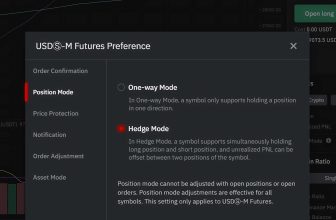Dive into the dynamic world of cryptocurrency trading with our comprehensive guide, showcasing 30 diverse types of trading bots designed to help you navigate the ever-evolving digital landscape. Empower your trading strategy by understanding each bot’s unique functionalities and advantages, and elevate your portfolio to new heights in this rapidly growing financial ecosystem.
In this article, we’ll explore the different types of crypto trading bots and how they can be used to maximize trading profits.
Introduction to Crypto Trading Bots
Crypto trading bots have become increasingly popular as the world of cryptocurrencies continues to evolve. These automated trading tools help traders make informed decisions, execute trades, and manage their portfolios with minimal manual intervention. However, not all trading bots are created equal, and it is essential to understand the different types of bots available to make the most of your trading experience.
Factors to Consider When Choosing a Trading Bot
Before diving into the types of crypto trading bots, it’s crucial to understand the factors that should be considered when choosing a bot. Some essential factors include the bot’s performance, ease of use, cost, and the level of support the bot’s developers provide. Additionally, it’s essential to consider the bot’s compatibility with your preferred exchanges and the strategies it supports.
Types of Crypto Trading Bots
A wide variety of crypto trading bots are available, each designed for specific trading strategies and user preferences. Here, we will discuss some of the most popular types of crypto trading bots.
1. Algorithmic Trading Bots
Algorithmic trading bots utilize pre-programmed trading algorithms to execute trades based on specific market conditions. These bots can be customized to fit a trader’s unique preferences and risk tolerance, allowing for more control over the trading process.
2. DCA (Dollar-Cost Averaging) Bots
DCA bots help traders implement the dollar-cost averaging strategy by automatically purchasing a fixed amount of cryptocurrency at regular intervals. This approach allows traders to mitigate the impact of market volatility and reduce the risk of making poor investment decisions.
3. SMART (Simple Multi-Asset Rebalancing Technique) Bots
SMART bots are designed to manage a diversified portfolio of cryptocurrencies automatically. These bots monitor market conditions and rebalance the portfolio according to predefined rules, ensuring the portfolio remains aligned with the trader’s desired risk and return profile.
4. AI (Artificial Intelligence) Trading Bots
AI trading bots leverage artificial intelligence and machine learning technologies to analyze market data, identify patterns, and make data-driven trading decisions. These bots can adapt to changing market conditions and continuously improve their performance over time.
5. Trend-Following Bots
Trend-following bots are designed to capitalize on established market trends. These bots analyze historical price data to identify and follow trends, executing trades when specific conditions are met. Trend-following bots can be particularly useful during periods of sustained price movements in one direction.
6. Arbitrage Bots
Arbitrage bots exploit price differences between different cryptocurrency exchanges. These bots continuously monitor multiple exchanges, identifying opportunities to buy low on one exchange and sell high on another, profiting from the price discrepancy.
7. Market-Making Bots
Market-making bots aim to profit from the bid-ask spread by placing limited orders on both sides of the order book. These bots help improve market liquidity and generate profits in rising and falling markets.
8. Mean Reversion Bots
Mean reversion bots are based on the concept that asset prices will eventually revert to their historical average. These bots monitor price fluctuations and execute trades when the price deviates significantly from its average, expecting it to revert to the mean.
9. Scalping Bots
Scalping bots focus on capturing small profits from numerous short-term trades. These bots execute a high volume of trades, taking advantage of minimal price movements in the market.
10. Sentiment Analysis Bots
Sentiment analysis bots analyze social media, news, and other online data to gauge market sentiment. These bots can identify potential market trends and execute trades based on prevailing sentiment.
Additional Crypto Trading Bots
While the bots mentioned above are some of the most popular types, there are many other specialized crypto trading bots available, such as:
11. Portfolio Management Bots
Portfolio management bots help traders manage their cryptocurrency portfolios by tracking assets, monitoring performance, and adjusting as needed. These bots can also assist in diversifying investments and implementing portfolio rebalancing strategies based on specific rules.
12. Copy Trading Bots
Copy trading bots enable traders to automatically replicate the trades and strategies of other successful traders. Users can choose to follow a specific trader, and the bot will execute trades in their account based on the selected trader’s actions.
13. Options Trading Bots
Options trading bots are designed to trade cryptocurrency options contracts, which are financial instruments that give the holder the right, but not the obligation, to buy or sell an underlying asset at a predetermined price on or before a specific date. These bots employ various strategies to profit from options, such as covered calls, protective puts, and iron condors.
14. High-Frequency Trading (HFT) Bots
HFT bots execute many trades at extremely high speeds, taking advantage of minimal price fluctuations and low-latency trading opportunities. These bots often use complex algorithms and require advanced infrastructure to operate effectively.
15. Grid Trading Bots
Grid trading bots place multiple buy and sell orders at predetermined price levels, creating a grid-like pattern. When the market price reaches one of the grid levels, the bot executes the corresponding order, capturing profits from the price movement. This strategy is particularly effective in range-bound markets.
16. Order Book Analysis Bots
Order book analysis bots monitor the order book data of cryptocurrency exchanges to identify potential trading opportunities. These bots can detect imbalances between buy and sell orders, which may indicate a potential shift in market direction, and execute trades accordingly.
17. Automated Market Analysis Bots
Automated market analysis bots perform technical and fundamental analysis on various cryptocurrencies, providing traders with insights and signals to aid their decision-making. These bots can track price trends, analyze chart patterns, and monitor news events to identify potential trading opportunities.
18. Statistical Arbitrage Bots
Statistical arbitrage bots identify and exploit temporary price inefficiencies between related assets by analyzing historical price relationships and statistical patterns. These bots typically use advanced mathematical models and require significant computational power.
19. Flash Crash Bots
Flash crash bots are designed to capitalize on sudden and extreme market downturns, often caused by panic selling or technical glitches. These bots can quickly identify and exploit these short-lived opportunities, buying assets at significantly discounted prices and selling them once the market stabilizes.
20. Crypto News Bots
Crypto news bots aggregate and analyze cryptocurrency-related news from various sources to identify potential market-moving events. Traders can use the insights provided by these bots to make informed decisions about their investments.
21. Social Media Analysis Bots
Social media analysis bots monitor and analyzes social media platforms like Twitter and Reddit to gauge market sentiment and detect emerging trends. By identifying shifts in sentiment, these bots can help traders predict potential market movements.
22. Order Execution Bots
Order execution bots focus on efficiently executing trades on behalf of the user. These bots can employ advanced order types, such as stop-limit and trailing stop orders, to help traders manage risk and improve their trade execution.
23. Volatility Bots
Volatility bots are designed to profit from the inherent volatility of cryptocurrency markets. These bots employ strategies that capitalize on sudden price swings, such as straddles, strangles, and delta-neutral positions.
24. Automated Risk Management Bots
Automated risk management bots help traders manage their risk exposure by implementing predefined risk management strategies, such as position sizing, stop-loss orders, and portfolio diversification.
25. Liquidity Provision Bots
Liquidity provision bots place limit orders on both sides of the order book to profit from the bid-ask spread, similar to market-making bots. By providing liquidity to the market, these bots can generate profits in both rising and falling markets while also earning exchange rebates for adding liquidity.
26. Order Management Bots
Order management bots help traders manage and organize their open orders more effectively. These bots can automatically cancel stale orders, modify existing orders based on predefined rules, and execute trades at optimal price levels.
27. Market Sentiment Analysis Bots
Market sentiment analysis bots assess the overall sentiment of the cryptocurrency market by analyzing news articles, social media posts, and other online data sources. These bots can provide insights into the prevailing market sentiment, helping traders make better-informed decisions.
28. Technical Analysis Bots
Technical analysis bots use various technical indicators and chart patterns to analyze cryptocurrency price movements and generate trading signals. Some common indicators these bots use include moving averages, RSI, MACD, and Bollinger Bands.
29. Trading Signal Bots
Trading signal bots generate buy and sell signals based on predefined criteria, such as technical indicators, price patterns, or market sentiment. These bots can help traders identify their trades’ potential entry and exit points.
30. Crypto Arbitrage Bots
Crypto arbitrage bots are specialized arbitrage bot that focuses exclusively on the cryptocurrency market. These bots monitor multiple exchanges and exploit price discrepancies between them, buying low on one exchange and selling high on another to profit from the price difference.
Each type of crypto trading bot serves a unique purpose, catering to different trading strategies and user preferences. By understanding the various types of bots and their functionalities, traders can choose the right tool to help them navigate the complex and volatile world of cryptocurrency trading.
Benefits and Risks of Using Crypto Trading Bots
Crypto trading bots offer several benefits, such as increased trading efficiency, reduced emotional decision-making, and the ability to execute trades 24/7. However, using bots also comes with potential risks, such as technical issues, reliance on historical data, and the possibility of hacking.
How to Get Started with Crypto Trading Bots
To start using a crypto trading bot, research various bot options and choose one that aligns with your trading strategy and goals. Ensure the bot is compatible with your preferred exchange and follow the developer’s instructions to set up and configure the bot.
Conclusion
FAQs
What is a crypto trading bot?
A crypto trading bot is an automated software tool designed to execute trades, analyze market data, and manage cryptocurrency portfolios with minimal human intervention.
What are the different types of Crypto Trading Bots?
There are various types of crypto trading bots, including algorithmic trading bots, DCA (Dollar-Cost Averaging) bots, SMART (Simple Multi-Asset Rebalancing Technique) bots, AI (Artificial Intelligence) trading bots, trend-following bots, arbitrage bots, market-making bots, mean reversion bots, scalping bots, sentiment analysis bots, and many more specialized bots catering to specific trading strategies and user preferences.
Which type of Crypto Trading Bot is best?
The best type of crypto trading bot depends on your trading style, goals, and risk tolerance. Different bots cater to different strategies, so it’s essential to research and experiment with various bots to find the one that aligns with your specific needs and objectives. Keep in mind that no trading bot can guarantee profits, and it’s crucial to manage risk and adjust your strategy as needed.
Do crypto trading bots guarantee profits?
No, trading bots do not guarantee profits. While they can increase efficiency and potentially improve trading decisions, a bot’s success depends on the strategies it employs and the market conditions.
Are crypto trading bots legal?
Yes, using crypto trading bots is generally legal. However, regulations can vary depending on your jurisdiction, so it’s essential to research local laws before using a trading bot.
How much do crypto trading bots cost?
The cost of crypto trading bots can vary widely, with some available for free and others requiring monthly subscription fees or one-time purchases. The price often depends on the bot’s features, complexity, and the level of support provided by the developers.
Can I use a trading bot on any cryptocurrency exchange?
Not all trading bots are compatible with every cryptocurrency exchange. It’s essential to ensure that the bot you choose supports your preferred exchange before committing to using it.






